While it's true 29 of 30 major league teams failed to win the World Series this year, it's not true 29 teams had unsuccessful seasons. If that were true, almost everybody -- teams, players, fans -- would be unhappy almost all the time. This wouldn't be fun. We'd all stop doing this.
We prefer to define success broadly around here, and to recognize success will look different for every team. How many of the 30 teams can claim 2017 was successful? How many GMs in March would have accepted, on their own terms, with the rosters they started the season with, under the limitations they had to deal with, the seasons their teams actually had this year? This calls for a ranking.
Successes: Won the World Series; coincidentally, had a huge parade through downtown Houston the very same week. Jose Altuve took another leap forward, will likely win the MVP award and is now narrowly on track to be inducted into the Hall of Fame as an Astro someday. Justin Verlander, acquired as almost a distressed asset in late August, immediately regained ace status and could be Houston's designated Game 1 starter for the next two postseasons.
Disappointments: Literally every action and event preceded the city's first World Series title, and thus cannot be separated from that title nor ruled out as a causal factor.
I'm not ruling out the possibility that a non-WS winner could have a more successful season, on their own terms, than the World Series winner. I've probably never seen it -- the 2014 Royals perhaps have a case -- but it's theoretically possible. This is not the year, though. From a city and franchise perspective, the Astros won one of the highest-return World Series titles of the century.
Good season? Great season!

Successes: They didn't just limp into the playoffs, they were a phenomenally good team. By Baseball Prospectus' third-order winning percentage -- which estimates what a team's record should be, based on underlying offensive and defensive performances -- the Yankees were as good as the Dodgers and Astros this regular season, so it's no surprise they knocked off Cleveland in the American League Division Series. Aaron Judge began the season fighting for a job and ended it as one of the three best players in the American League. Luis Severino ended last season in the bullpen, and most likely ended this one on a majority of Cy Young ballots. The players the Yankees added at the trade deadline will mostly be around, and good, next year. They did all this and put themselves in position to get under the luxury tax threshold next season, which will give them more payroll flexibility in the years afterward. All of this happened with almost no expectations on them in 2017. It was as perfect as a season that ends on Oct. 21 can be.
Disappointments: They blew a 3-2 lead. They were so close.
Good season? Great season!

Successes: So many. The best 50-game stretch in a century, the best record by any team since 2004, a dominant march to their first World Series appearance since 1988, a victory in one of the most thrilling World Series games ever, one of the most memorable perfect game bids ever, one of the most charming ceremonial first pitches ever, the National League's rookie home run record, the long-overdue near-universal appreciation of Yasiel Puig. Their player development department had success with a number of under-the-radar prospects, they ended the season with two of the dozen best prospects in baseball, and their under-25 hitters were the best under-25 hitters (by OPS) in the National League.
Disappointments: I think a lot about Game 3 of the World Series. Yu Darvish got knocked out in the second inning, after allowing a double to Altuve that put runners on second and third. The Dodgers trailed by four, and manager Dave Roberts had a decision to make: Were the Dodgers still in the game or not? If not, bring in Ross Stripling and Brandon McCarthy and start Game 4 at full strength. If yes, bring in Kenta Maeda and ask him to keep the game close.
This was an extremely difficult decision. Roberts chose Maeda. Then, later, he had to keep making the decision, over and over, letting Maeda throw 42 pitches, then bringing in an overstretched Brandon Morrow. It almost worked -- the Dodgers had the tying run up in the seventh, and on deck for all of the eighth and ninth -- but, ultimately, it cost them. Maeda was still gassed two days later, and Morrow was entirely broken by overuse, and the Dodgers lost Game 5. We don't know what would have happened, in Game 3, in Game 5, in Games 6 and 7, if Roberts had chosen differently, but it certainly looks like a decision that cost the Dodgers the World Series. I think it was the right decision. Sometimes the right decision is costly.
Here's the thing: What if, instead of Altuve doubling, he had homered? Then it's a six-run game. Then the Dodgers are definitely not in it. Then it's Stripling and McCarthy. Those are the margins, and the bizarre unknowns, that we're working with in a World Series: Allow a double and you lose, allow a homer and you win. How does that make sense in any reality except the one we just saw?
All of which is to say the Dodgers didn't win the World Series, despite spending more over the past five years than the Cubs and Astros combined.
Good season? Good season!

Successes: Won 24 more games than they did in 2016, and won the wild card game to reach the NLDS for the first time since 2011. A rotation that began the season with Zack Greinke in decline and four question marks behind him ended up being the best in the National League, with Robbie Ray emerging as something like an ace. J.D. Martinez was the best trade deadline rental since ... CC Sabathia in 2008? Randy Johnson in 1998?
Disappointments: Trailed in all but three innings of the NLDS, a preview of what's probably to come for the Diamondbacks -- nice seasons stomped on by their $250 million payroll division rivals.
Good season? Good season!

Successes: Made the playoffs in a year they had no business even thinking about it. Byron Buxton's annual Glimpse Of His Awesomeness lasted longer than usual this year, as he hit .314/.359/.553 after July 4. They got to be sellers at the trade deadline and still make the postseason.
Disappointments: They ran up against the most talented collection of postseason teams ever, and didn't survive the gantlet for long.
Good season? Good season!

Successes: At 200-to-1 in Vegas, the Brewers tied for the lowest preseason odds of winning the World Series. But they would lead the NL Central into late July, win 86 games, miss the wild card by a single game and outdraw the Washington Nationals at the gate. Their Baseball-Reference page is like Santa's bottomless bag of presents. No matter how many times you go back, you'll discover each time yet another Brewer you've never heard of who had a good season.
Disappointments: Probably would have been a better feel-good story if they'd missed the playoffs by, say, two games, or even three, or better yet four. Especially considering they had the lowest payroll in baseball, by choice. Especially considering they blew more leads (50) than any team in baseball.
I think we're still at undeniably successful seasons, by the way.
Good season? Good season!

Successes: They won an AL-record 22 straight games. They arguably had the best pitching staff in decades -- or ever -- and Corey Kluber will likely win the Cy Young Award. They're just an absolute joy to watch, and more than 2 million people paid to do so for the first time in nearly a decade. They invested in Edwin Encarnacion and Jay Bruce to make a great team elite, and both moves paid off.
Disappointments: They were probably the best team in baseball and blew a 2-0 lead in the five-game ALDS. Their drought without a World Series gets a year longer, and with Cleveland's financial margins they probably can't spend at this level forever.
Good season? Good season!

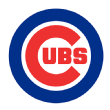 8. Chicago Cubs
8. Chicago Cubs
Successes: Made it to the NLCS. Brought back almost everybody from the 2016 parade, and had a lot of fun. Jon Lester picked a guy off, and it was probably the most savage moment of the entire regular season. Had the NL's best second-half record, by a lot, with a young and awesome offensive core that could easily "surprise" us all by winning 109 games next year.
Disappointments: Every starting pitcher lost velocity. Failed to be dynasty.
Good season? Good season!

Successes: Made the playoffs in a season when some supposedly smart writers were warning them not to take themselves too seriously. They developed Jon Gray into, arguably, the best homegrown pitcher in franchise history.
Disappointments: They were under .500 (barely) in the second half and have to wonder whether losing a one-game playoff was the ceiling for this group. Of course, they can always improve this group.
Good season? Good season.

Successes: I got to vote for the American League Manager of the Year Award, and I asked my friend Matt Trueblood, who writes the Penning Bull newsletter, if there is a good case for any idiosyncratic pick. His answer almost convinced me:
"Look, you have to want it, and define the manager's job as the maximal and optimal execution of the organization's plan instead of winning games, but: Rick Renteria. That dude has the Sox wanting it, competing even after they traded their world away, is bringing along a whole bunch of important players in unexpected and valuable ways. Tons of trust from the Latino players. More hands-on than maybe any other skipper in the league from an instruction standpoint."
Disappointments: Bad team.
Good season? Good season.

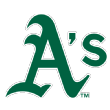 11. Oakland A's
11. Oakland A's
Successes: Sonny Gray rebounded enough to bring back two top-100 prospects at the trade deadline. Yonder Alonso sort of salvaged the disastrous Drew Pomeranz deal from a couple years back, outslugging anybody's wildest expectations. When he was traded for Boog Powell in August, the 24-year-old Powell hit .321/.380/.494 to further outslug anybody's expectations. The A's had one of the best groups of under-25 hitters in baseball; the 24-year-old Matt Chapman led AL third basemen in defensive runs saved, despite spending only half the season in the majors. While the 23-year-old first baseman Matt Olson did this:
• Matt Olson, 2017: 216 PA, 24 HR, .259/.352/.651, 164 OPS+
• Gary Sanchez, 2016: 229 PA, 20 HR, .299/.376/.657, 168 OPS+
Their first-round pick from 2016, A.J. Puk, struck out 184 batters in 125 innings combined at High- and Double-A.
Disappointments: It was an unsuspenseful slog to last place -- they didn't have a winning month until September. The three touted young pitchers from the previous summer's big deal, which sent Rich Hill and Josh Reddick to the Dodgers, all lost shine.
Good season? Good season.

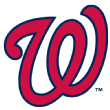 12. Washington Nationals
12. Washington Nationals
Successes: Stephen Strasburg finally fulfilled his destiny as the best pitching prospect ever. It wouldn't be a shock to look back in two years and realize that, sometime in 2017, he became the best pitcher in the world, though we don't quite know it yet. Washington won its division easily, and overcame a brutal run of injuries to top 95 wins for the fourth time in six years. There are years when this Nationals team, playing exactly as they did, would have been the best team in baseball and won the World Series and looked inevitable doing it.
Disappointments: Failed, yet again, to make the first LCS in team history.
Arguably, no season that ends with the manager getting fired should be deemed a happy one. Arguably, though, no season that ends with a romp to the division title should be deemed an unhappy one. We're getting into ambiguous territory here.
Good season? Good season, I think.

 13. Miami Marlins
13. Miami Marlins
Successes: Got rid of their owner. They also got to watch a genuine home run record chase. Or was it a record? We weren't done debating that when the season ended and Giancarlo Stanton was still short of 61. The Marlins led the National League in OPS+, had an above-average hitter at every position but one, turned Marcell Ozuna into a star and got a no-hitter out of Edinson Volquez.
Disappointments: The other 161 starts by their pitching staff.
Good season? Good season, I think.

 14. Boston Red Sox
14. Boston Red Sox
Successes: Got under the luxury tax threshold, saving them from paying hefty fees every year. Despite that, they managed to add Chris Sale over the winter and win the American League East without much stress. Craig Kimbrel bounced back to have one of the great relief seasons ever, and top prospects Andrew Benintendi and Rafael Devers had strong rookie seasons.
Disappointments: The team's underlying performance wasn't that impressive, especially offensively, especially in an era when every team had four hitters with 25 home runs and Boston had none. Their manager got fired; see Washington Nationals entry for the fired-manager rule.
Good season? Good season, I think.

Successes: A number of young, core players either made the leap to the majors or made leaps in the majors, including Nick Williams, Jorge Alfaro, Rhys Hoskins and Aaron Nola. Hoskins, who wasn't a top-100 prospect entering the season, had a huge Triple-A campaign, then a historically good debut, and more or less convinced everybody he's for real. They had the youngest pitchers in the NL and the second-youngest position players, and they were sort of credible, with a significantly improved run differential over the previous two seasons.
Disappointments: You could have imagined this being the consolidation year, with the Phillies pushing close to .500 and entering the winter as 2018 contenders. But Maikel Franco kept going backward, Vince Velasquez got hurt and J.P. Crawford struggled for much of the year in Triple-A, which probably all adds up to one extra year of rebuilding -- one extra year of fans having to watch a team with no chance.
Good season? Probably good season. We'll know more ... next season?

Successes: They kept doing that Cardinals thing: Tommy Pham, 29 years old and with 14 career homers, suddenly became a superstar, topping Carlos Correa and Kris Bryant with the 10th-most WAR in baseball. The Cardinals are like the guy who reaches into his winter pocket, finds an unexpected $5 bill, then notices that it's actually a 50. Jose Martinez outhit George Springer; Kyle Wallace outhit Gary Sanchez; Paul DeJong outhit Brian Dozier. Which of those names did I make up? Does it matter?
Disappointments: Won fewer games than they had in a decade and missed the playoffs for a second year in a row.
Good season? Ehhh. Yeah, but it doesn't feel like it.

Successes: Without falling into any costly traps last winter, they played meaningful baseball into the final two weeks of the regular season. The Angels had more comeback wins than any team in baseball, and if there was never any real sense that they were actually good, those comebacks (and the lackluster competition for the second wild-card spot) provided the constant feeling that they might be in it. On a rate basis, Mike Trout actually had his best offensive season, and paying fans got to see one of the dozen best players in history (at least) reaching his peak. The Angels drew more than 3 million, with no dropoff from previous years, showing incredible durability with their fan base.
Disappointments: For first time since 2012, they had to play baseball without Trout for an extended period; his flawless resume got a little wrinkle, and we also learned the disappointing news that his "official" nickname is Kiiiiiid. Pop-up closer Bud Norris, mere days away from returning something of value at the trade deadline, abruptly gave up eight runs across three outings, sinking his trade stock and costing the Angels two wins. Albert Pujols collapsed, from overpaid but useful to one of the worst players in baseball. That day was coming, as it does for us all, but for Pujols it arrived with four years and $114 million still on his contract.
Good season? Ehhh. Yeah, but it doesn't feel like it.

 18. San Diego Padres
18. San Diego Padres
Successes: Their run differential suggests a team that should have won 59 games, and the Padres somehow won 71. Which is to say that, for a team in full rebuild, with practically no concern for the major league product and maybe three good players, it could have been a lot, lot uglier than it was.
Disappointments: It's still not clear at all who their All-Star will be in 2019.
Good season? No, but it had a purpose.

 19. Texas Rangers
19. Texas Rangers
Successes: The Rangers hit a ton of home runs. Fun team, lots of young players, lots of dingers. Rougned Odor hit 30 home runs as a second baseman.
Disappointments: The Rangers were pretty bad. Uneven team, lots of struggling, lots of outs. Odor hit .204/.252/.397.
Good season? No, but it had a purpose.

 20. Detroit Tigers
20. Detroit Tigers
Successes: They got the first overall pick in the draft, and they really had to spend only one month (September) being truly pathetic to get it. The Tigers' rebuild was a long time coming, continually delayed by a rich owner and a glimmer of veteran star power; that it was finally forced upon them is probably for the best.
Disappointments: For the first time in his career, Miguel Cabrera won't get an MVP vote. None of the Tigers' summer trades looks all that great in retrospect: J.D. Martinez and Justin Upton brought back modest returns in a bad market for outfielders, while Verlander almost immediately turned his season around after joining the Astros. Detroit was probably happy just to shed the salary, but now it looks like it handed Houston an ace for the next two years.
Good season? No, but it had a purpose.

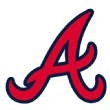 21. Atlanta Braves
21. Atlanta Braves
Successes: Shortstop Ozzie Albies had a fantastic debut, hitting better as a 20-year-old major leaguer than he had even in the minors. The Braves' farm system remained loaded, with seven of the top 50 prospects in Keith Law's midseason top 50. Their offseason trade for high-upside catching prospect Alex Jackson looks like it has a better chance of paying off.
Disappointments: If this was supposed to be a consolidation year -- like the Astros' 2014 season, when Altuve won his first batting title and Dallas Keuchel cut his ERA almost in half -- it was mostly a failure. Dansby Swanson's stardom crashed, ace Julio Teheran had a career-worst season, and the Braves fielded one of the oldest, least interesting rosters in the National League. There was fun stuff happening below the surface, on the farm, but Atlanta's were not 72 fun and lively victories. Then GM John Coppolella was forced out at season's end amid investigations into the Braves' international signings and industry-wide schadenfreude and hints that the front office was profoundly dysfunctional.
Good season? No, but it had a purpose.

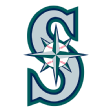 22. Seattle Mariners
22. Seattle Mariners
Successes: Mike Zunino, who for some reason is the favorite player of every Mariners fan I know, returned from a demotion and played like a star in the second half. If this were anybody else, it would be one good second half. But Mariners fans I know seem to draw a lot of self-esteem from Zunino's success.
Disappointments: It has been 14 years since the Mariners had consecutive winning seasons, 16 since they made the playoffs -- the longest drought in baseball. They are, by those measures, the most woebegone franchise in baseball for this generation of fans. The Mariners under Jerry Dipoto remain most famous for making a lot of trades, not yet for winning a lot of trades.
Good season? No, but it didn't break anything.

 23. Tampa Bay Rays
23. Tampa Bay Rays
Successes: Kevin Kiermaier continued to play defense and let people watch.
Disappointments: The Rays continued their recent habit of pairing bad records with strong underlying performances. In this case, Baseball Prospectus' third-order winning percentage had the Rays playing like an 89-win team, better than the Red Sox. Instead, they won 80. This would be encouraging going forward, except that something like this has happened to the Rays every year since 2011, suggesting that there might just be something broken about the Rays.
They also gave up on Tim Beckham roughly 20 minutes before he turned into a star.
Good season? No, but it didn't break anything.

Successes: Bo Bichette and Vladimir Guerrero Jr. both had big breakouts. Guerrero jumped from 48th on Keith Law's preseason prospects list to No. 8 at midseason, while Bichette was 34th at midseason after missing the top 100 in January.
Disappointments: A year after making the ALCS, the Blue Jays won 76 games and didn't top 10 percent playoff odds after June. For that they paid roughly $177 million, the fifth-highest Opening Day payroll in baseball. Blisters so disrupted 2016 staff ace Aaron Sanchez's season that the young right-hander threw only 36 innings, with four separate DL visits.
Good season? No.

Successes: Eric Hosmer, Mike Moustakas and Lorenzo Cain, in their free-agent walk years, were all good enough to make it an easy decision to give them qualifying offers. That means the Royals will at least get compensation draft picks when the three sign elsewhere. The Royals played meaningful baseball into September,
Disappointments: The core of the 2014-15 World Series rosters is leaving this winter, and there hasn't been a lot of talent coming up behind them. Jorge Soler, acquired for Wade Davis last winter, was egregiously bad.
Good season? No.

 26. Cincinnati Reds
26. Cincinnati Reds
Successes: Scott Schebler, Zack Cozart, Scooter Gennett and perhaps Eugenio Suarez all had career years, and the Reds were a fun and competent major league team exactly half the time.
Disappointments: The other half of the time they were pitching.
Good season? No.

Successes: Jameson Taillon successfully returned from cancer.
Disappointments: Starling Marte was suspended for PEDs, Gregory Polanco's homers and stolen bases both halved, Tyler Glasnow's ERA quadrupled upon his promotion to the bigs, and the Pirates were never close.
Good season? No.

Successes: Played meaningful baseball in August. Got to host 50 showings of the excellent and inspiring Tim Beckham Story.
Disappointments: The team that kept beating pessimistic projections ... didn't beat pessimistic projections. There will be a lot more pessimistic projections this winter, and the Orioles will (perhaps reasonably) tell themselves that the projections just don't get them. It'll be harder to believe now.
Good season? No.

 29. New York Mets
29. New York Mets
Successes: Michael Conforto was basically a star, and Noah Syndergaard -- 34 strikeouts, two unintentional walks, no homers allowed in 30 innings -- might be better than the best-case projections for him. Amed Rosario might be the best prospect in baseball, and debuted at 21. There remains something like a very good core here, and not all things that happened to that core were bad.
Disappointments: The perils of building around young pitching were, for the one millionth time, proven. Matt Harvey's 6.70 ERA is the worst in franchise history (minimum 80 innings). Matt Harvey! Zack Wheeler ended up back on the 60-day DL, Robert Gsellman got hit hard, Syndergaard threw 30 innings, and one Jacob deGrom is not enough for a team built around young pitching. It was a bleak season, as down years for the Mets inevitably are.
Good season? No.

Successes: There were none.
Disappointments: A team that began the season with better Vegas odds than the Astros, a higher payroll than the Cubs or Nationals, and fresh memories of having the best first-half record in baseball in 2016, the Giants ended up with their worst record since 1985. Worse, they lost the No. 1 overall pick when the Tigers collapsed better than they did in September. The two teams ended up with the same record, but the Tigers "win" the tiebreaker on account of the Giants' superior 2016 record, yet another way that the Giants' incredible success in the first half of '16 makes '17 look all the more disastrous.
Good season? LOL.
Thanks to Jeffrey Paternostro and Craig Goldstein for assistance.

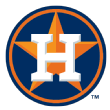 1.
1. 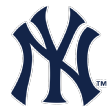 2.
2. 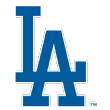 3.
3.  4.
4.  5.
5. 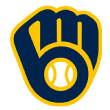 6.
6. 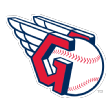 7.
7.  9.
9. 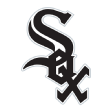 10.
10.  15.
15.  16.
16. 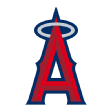 17.
17. 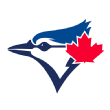 24.
24.  25.
25.  27.
27. 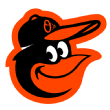 28.
28. 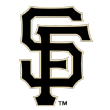 30.
30.